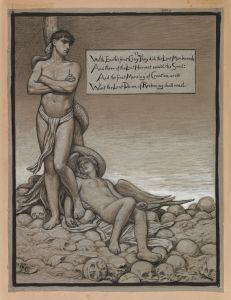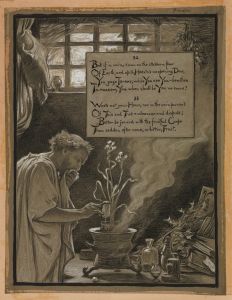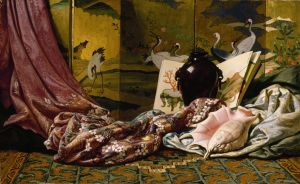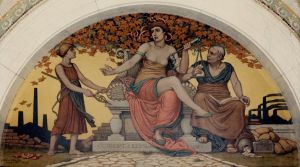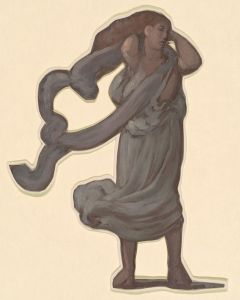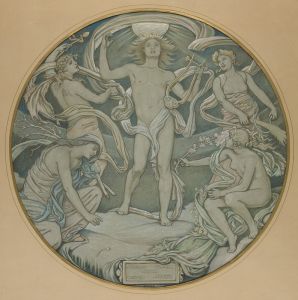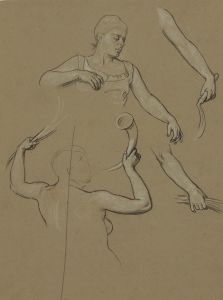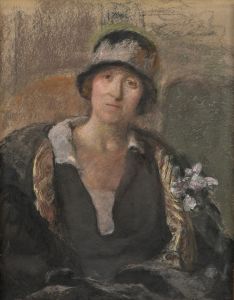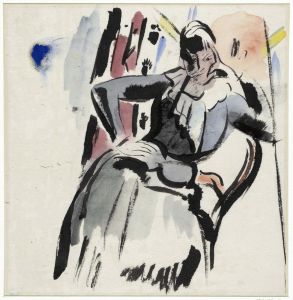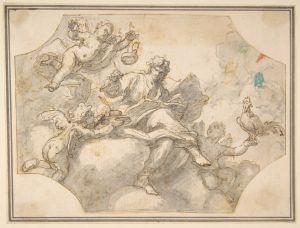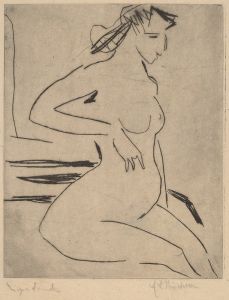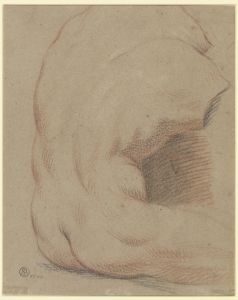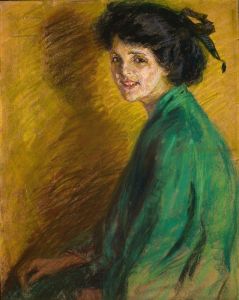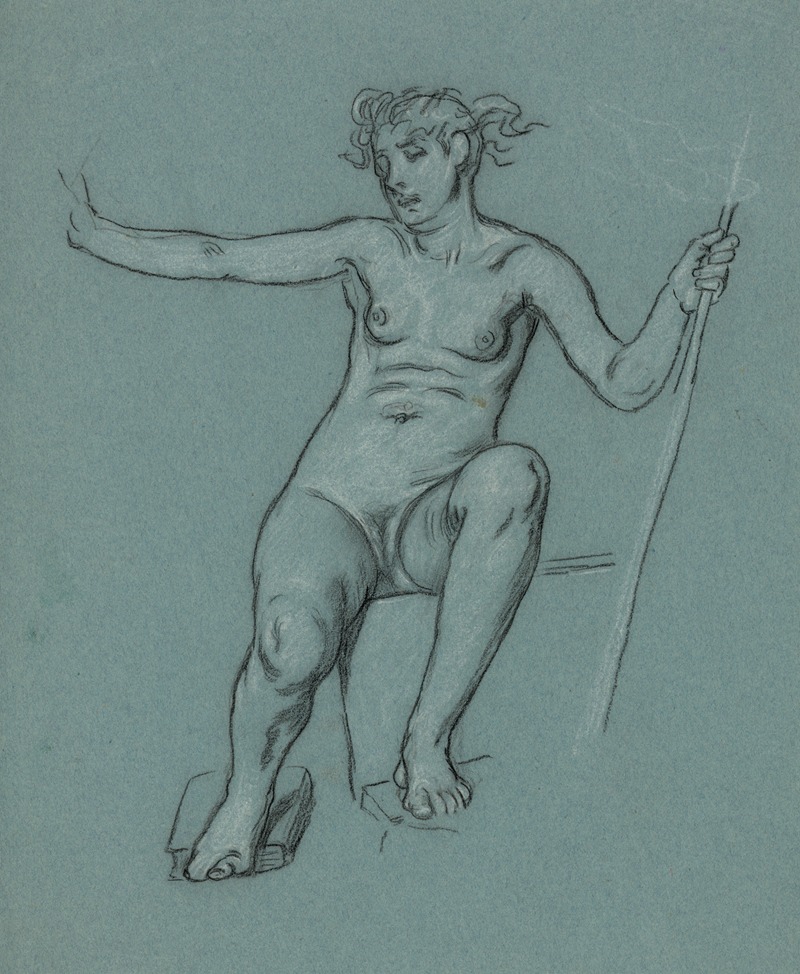
Female nude, seated
A hand-painted replica of Elihu Vedder’s masterpiece Female nude, seated, meticulously crafted by professional artists to capture the true essence of the original. Each piece is created with museum-quality canvas and rare mineral pigments, carefully painted by experienced artists with delicate brushstrokes and rich, layered colors to perfectly recreate the texture of the original artwork. Unlike machine-printed reproductions, this hand-painted version brings the painting to life, infused with the artist’s emotions and skill in every stroke. Whether for personal collection or home decoration, it instantly elevates the artistic atmosphere of any space.
Elihu Vedder was an American symbolist painter, born on February 26, 1836, in New York City. He is best known for his allegorical works and his illustrations for the Rubáiyát of Omar Khayyám. Vedder's style often incorporated elements of mysticism and symbolism, reflecting his interest in the spiritual and the esoteric. His work was part of the broader Symbolist movement, which sought to express ideas and emotions through symbolic imagery and themes.
"Female Nude, Seated" is one of Vedder's works that exemplifies his skill in rendering the human form with a sense of grace and introspection. Although specific details about this particular painting are limited, it is consistent with Vedder's broader oeuvre, which often featured figures in contemplative poses, set against minimalistic or abstract backgrounds. This approach allowed the viewer to focus on the emotional and symbolic content of the work.
Vedder's nudes, including "Female Nude, Seated," are characterized by their delicate handling of light and shadow, which enhances the three-dimensionality of the figure. The seated pose of the female nude suggests a moment of rest or introspection, a common theme in Vedder's work, where figures are often depicted in states of contemplation or reverie. This aligns with the Symbolist movement's focus on exploring the inner world of emotions and ideas, rather than merely depicting the external world.
The painting reflects Vedder's academic training and his exposure to European art during his travels. He studied in Italy, where he was influenced by the Renaissance masters, and this influence is evident in his careful attention to anatomy and form. However, Vedder's work also diverges from strict academic realism, incorporating elements of fantasy and imagination that are hallmarks of Symbolism.
Vedder's contribution to American art is significant, as he was one of the few American artists of his time to fully embrace the Symbolist aesthetic. His work, including "Female Nude, Seated," offers a glimpse into the transitional period of the late 19th and early 20th centuries, when artists were increasingly interested in exploring themes beyond the visible world. Vedder's paintings often invite viewers to ponder deeper philosophical and existential questions, a testament to his interest in the metaphysical and the unknown.
While "Female Nude, Seated" may not be as widely recognized as some of Vedder's other works, it remains an important piece within his body of work, illustrating his mastery of form and his commitment to exploring the symbolic potential of art. Vedder's legacy continues to be appreciated by those interested in the intersections of art, philosophy, and spirituality, and his works remain a subject of study for their innovative approach to depicting the human experience.





